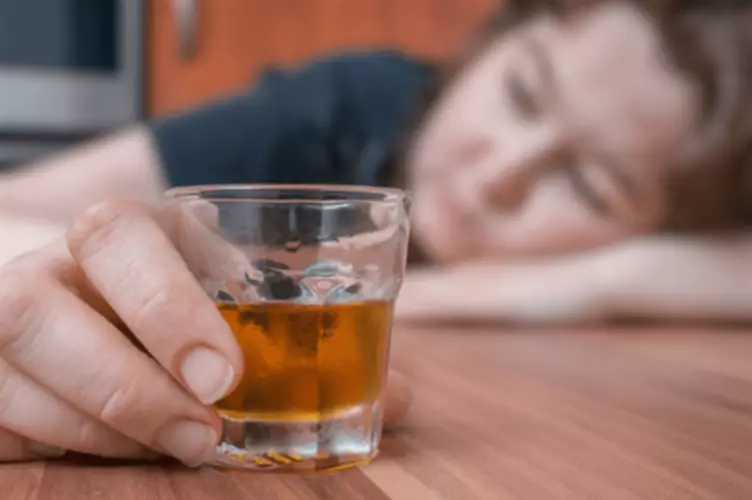Content
This may help you to understand SUD and how addiction works, which can help you separate your partner and the disease. Codependency keeps people from having healthy relationships, so unless this dynamic is changed, sobriety may not be enough to keep the cycle from continuing. It’s recommended that the supportive partner seeks their own support during the recovery process. You may consider individual therapy or a peer-led support program like Al-Anon.

Does your partner acknowledge their addiction, and are they actively seeking help and recovery? Look for signs of genuine commitment, such as attending therapy, participating in support groups, and making lifestyle changes. The easiest path may be to sink back into the same hobbies and habits you and your spouse enjoyed before, but it’s important to realize that those might be different now.
How Do You Support Your Sober Partner in Recovery? 13 Real Strategies
Be engaged in their treatment, and work on healing the relationship. In a relationship affected by substance use, it’s likely that trust has been broken many times. The supportive partner may have learned to walk on eggshells in an attempt to retain peace in the relationship. There are over 40 million people in the U.S. alone living with substance use disorder. And many of those individuals have partners or spouses. A sobriety birthday is the date on which someone decides to stop using drugs or alcohol.
You will find different ways of describing the stages and how many married people go through. Go on dates, be completely honest with one another, and try to treat the marriage as a new relationship. Understand that rebuilding your marriage will be a long and challenging process, and keep your expectations reasonable. Social drinking is typically characterized by moderate alcohol consumption in a social setting without causing harm to the drinker or others around them. Binge drinking, on the other hand, is defined as drinking to the point of intoxication, often leading to risky behavior but doesn’t necessarily mean the person has AUD.
Inside Tori Spelling and Dean McDermott’s Amicable Divorce (Source)
Attending support groups like these can help build an understanding of what addiction is and how to deal with an alcoholic or other recovering addict in a healthy and supportive manner. Checking in regularly when supporting a partner toward sober living means constant communication, consistent assessment, and accountability. The first 30 days of being sober marriage changes after sobriety can be the most challenging time since your partner is just starting on their journey. There may be physical, emotional, and mental signs of withdrawal. During this time, daily check-ins are extremely helpful. Studies show that a healthy support system is a significant factor in an individual’s success in recovery and lowers the risk of relapse.
Sharing the times when you’re going to an AA meeting or making progress in your 12 Step Program can renew your partner’s faith that you’re truly going to get and stay sober. It’s an old adage that communication is vital in marriage anyway, and that’s especially true when one or both partners are recovering https://ecosoberhouse.com/ addicts. If you’re reading this, it’s likely because your spouse is struggling with addiction. While there may be some correlation between a successful marriage and sobriety, partners entering recovery can also learn to get healthy together. It’s tough when one spouse is sober, and the other is not.
Create a Supportive Plan
Sit down and define exactly what you both expect from each other, and what your boundaries are. This will set you up for success and avoid future pain and conflict. Confronting alcoholism is a challenging process both for those abusing alcohol and their loved ones. As the partner of someone in recovery, it can be confusing and overwhelming. Perhaps you have just discovered that the person you love has a problem with alcohol and needs your help.
- Internal triggers – These are often caused by thoughts or emotions such as anxiety, excitement, sadness, and frustration, among others.
- You will find different ways of describing the stages and how many married people go through.
Adam Banks was an airline pilot who turned to alcohol to cope with the trauma of having been in the skies on Sept. 11, 2001. His use escalated over the years, and by his early 30s, he realized that it was time for him to quit — but it took a while before he understood that this would require leaving his partner. A marriage in recovery means volunteering to go through that backlog together. Some people, frankly, don’t have the stomach for it. In the first few months, the novelty of a new country and life was enough to keep my drinking a mostly social endeavor, albeit a reckless one. If you’re a woman, you can drink for free pretty much any night of the week if you want.
Jax Taylor and Brittany Cartwright Get Candid About Their Sex Life Before Breakup
Though I did not doubt that we loved each other, the chaos of addiction had eroded our trust in each other, and my life no longer felt my own. During your or your spouse’s recovery process, there may be an opportunity to attend family or marriage counseling. Just as you need help overcoming the chains of addiction, the marriage trauma after substance abuse should be addressed with professional assistance. A few months after deciding to get sober, your partner may feel more calm and relaxed.
David and I surely weren’t modeling good behavior for our kids. The best thing I could do for myself and my children was to divorce their father. Instead, I’m grateful for my experience with an open marriage, because it was the push I needed to leave David. I needed something — someone — to compel me into action. Opening my marriage and falling for Randy were the necessary events to catapult me out of my terrible circumstances.
